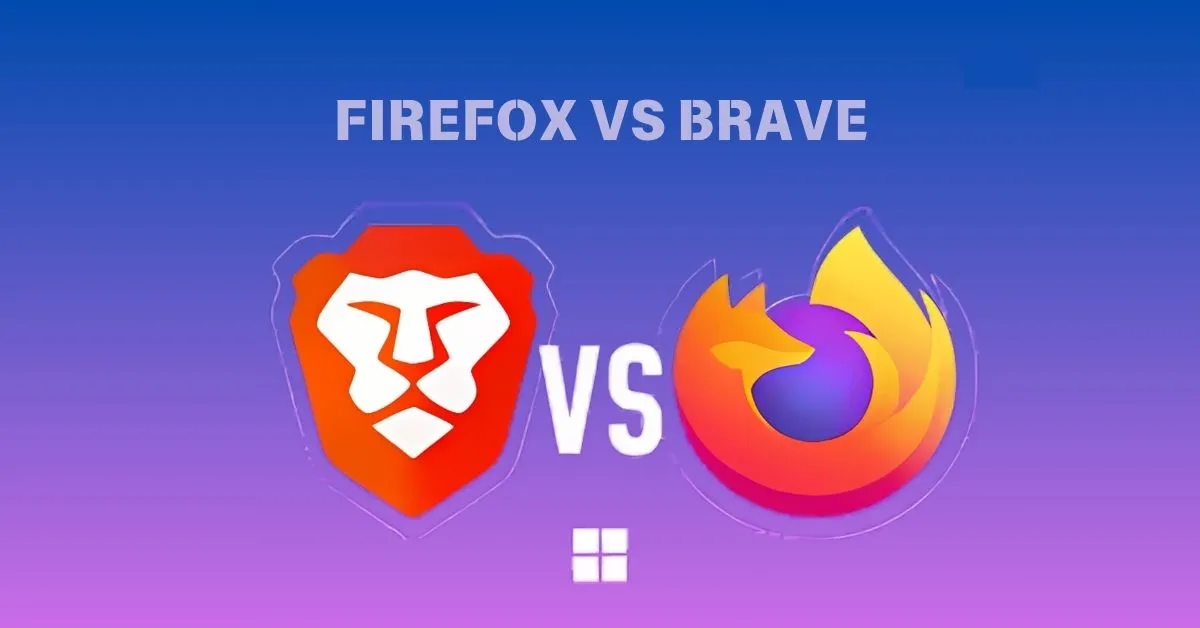The Ultimate Guide: Choosing Between Firefox and Brave Browsers
Choosing the right browser can feel overwhelming with so many options available. You might wonder if you should go with Firefox, known for its privacy features and customization options, or Brave, which emphasizes speed and blocking ads.
In this guide, we’ll break down the key features, benefits, and drawbacks of both Firefox and Brave browsers to help you make an informed decision. You’ll find out which browser suits your needs—whether it’s for work, leisure, or something in between. So, take a moment to assess what matters most to you in a browser, as this will shape your browsing experience each day.
Understanding Browser Basics
Choosing the right web browser involves knowing what a web browser is, why web privacy and security matter, and how different browsers perform. These points help you make an informed decision.
What Is a Web Browser?
A web browser is a software application you use to access information on the World Wide Web. When you enter a URL or click a link, the browser locates and displays the requested website.
Popular examples of web browsers include Firefox, Brave, Chrome, Safari, and Edge. Each browser has unique features and capabilities.
Browsers support various web standards and offer functionalities such as bookmarks, tabs, and extensions. They also handle multimedia content, such as videos and interactive elements on web pages.
The Importance of Web Privacy and Security
Web privacy and security are crucial in today’s online environment. Browsers play a significant role in protecting your personal data and ensuring safe browsing.
Privacy features often include options to block trackers, clear cookies, and prevent fingerprinting. These measures help protect your identity and browsing habits from being tracked by third parties.
Security features involve built-in protections against malware, phishing attacks, and malicious websites. Browsers regularly update to patch vulnerabilities and enhance security.
Comparing Browser Performance
Performance affects your browsing experience significantly. Key aspects include speed, resource usage, and stability.
Speed: How quickly a browser loads websites. Fast load times enhance your overall experience.
Resource Usage: How much memory and processing power the browser consumes. Efficient browsers balance performance without overly taxing your system.
Stability: Reliability and frequency of crashes. Stable browsers ensure a smoother experience by preventing disruptions.
Diving Into Firefox
Firefox has a rich history, offers a variety of key features and tools, and provides robust customization and security protections.
Firefox’s Rich History
Firefox was launched in 2002 as an open-source project by the Mozilla Foundation. It sought to offer users an alternative to Microsoft’s Internet Explorer. Over the years, Firefox became known for its emphasis on speed, privacy, and support for web standards. Its frequent updates and improvements have kept it relevant amid fierce competition. The browser’s open-source nature allows for community contributions, leading to a wide array of features.
Key Features and Tools
Firefox offers several features that make browsing efficient and secure. The browser’s Quantum engine boosts speed and performance, ensuring smooth navigation even with multiple tabs open. The Enhanced Tracking Protection blocks third-party trackers, enhancing privacy. Firefox’s built-in PDF viewer, screenshot tool, and reader mode add convenience. The browser is also known for its no-nonsense interface, aiming to reduce distractions while you browse.
Customization and Extensions
Customization is one of Firefox’s strong suits. You can change the look of the browser with themes, arrange the toolbar to fit your needs and organize bookmarks with ease. The extensive library of extensions allows you to add functionalities tailored to your browsing habits, from ad blockers to productivity tools. Whether you prefer minimalist setups or feature-packed interfaces, Firefox adapts to your preferences seamlessly.
Security and Privacy Protections
Privacy and security are cornerstones of Firefox. The browser includes features like Enhanced Tracking Protection and DNS over HTTPS to guard your data. Firefox Monitor warns you if your email appears in a known data breach. The Private Browsing mode deletes cookies and history after each session, reducing the risk of tracking. Additionally, frequent security updates keep your browsing experience safe from vulnerabilities.
Exploring Brave
Brave is a relatively new player in the browser market, gaining attention for its strong stance on privacy and unique reward system. Let’s break down what makes Brave stand out.
The Brave Newcomer
You might be surprised that Brave, started by Brendan Eich in 2016, has quickly become a favourite. This browser takes a user-first approach and focuses on improving your web experience by blocking ads and trackers out of the box.
The interface is sleek and modern. With familiar tab management and bookmarking features, you won’t feel lost switching from another browser. Its commitment to user privacy sets it apart, aiming to provide a faster, safer browsing experience.
Brave’s Built-In Privacy
Privacy is a cornerstone of Brave. Without any additional setup, Brave blocks ads and trackers automatically. This means your data is less likely to be collected and used without your consent.
Unlike other browsers that require extensions for privacy protection, Brave has these features built-in. This includes blocking third-party cookies, fingerprinting protection, and HTTPS upgrades. This dedication to privacy ensures your web activity remains confidential and secure.
Reward System and Ad Blocking
Brave’s unique approach to ads is what gets people talking. It includes a feature called Brave Rewards. Instead of bombarding you with unwanted ads, it allows you to choose to view privacy-respecting ads and earn tokens.
These tokens can be used to support your favourite websites or content creators. It’s a win-win situation. You can also opt to block all ads entirely, enhancing your browsing speed and experience. This flexibility is what makes Brave appealing.
Performance and Efficiency
Speed is another area where Brave shines by blocking unnecessary ads and trackers, pages load faster. Your browsing experience feels smoother and more responsive.
Brave also consumes less memory compared to some other browsers, making it efficient for your system. This efficiency means less strain on your hardware, which can be particularly useful if you often have multiple tabs open or use a lot of resources.
Making the Choice
Choosing between Firefox vs Brave Browser depends on your preferences for interface design, platform compatibility, and engagement with communities or developers.
Comparing User Interfaces
Firefox sports a traditional, customizable design, known for its flexibility. It supports extensive themes and extensions, letting you tailor the browsing experience. On the other hand, Brave’s interface is minimalistic and focused on privacy, with built-in ad blockers and user-friendly crypto features. Your choice depends on whether you prefer deep customization or a streamlined, privacy-focused experience.
Cross-Platform Availability
Both browsers offer compatibility across various platforms, such as Windows, macOS, Linux, Android, and iOS. Firefox is often pre-installed on many Linux distributions, making it convenient for users in that ecosystem. Brave, recognized for its speed and privacy features, is available on mobile and desktop, ensuring you can browse seamlessly across devices.
Community and Developer Support
Firefox benefits from a large, active open-source community, constantly contributing to its development and security. This support ensures frequent updates and a rich repository of add-ons. Brave, while newer, has a growing community and support from privacy advocates and developers interested in blockchain technology. Engagement with either community depends on whether you value extensive legacy support or innovative privacy-first approaches.
Conclusion
And there you have it! Choosing between Firefox and Brave boils down to what you prioritize in your browsing experience. If you’re all about deep customization and a rich legacy of open-source support, Firefox is your go-to. Its robust privacy features and vast extension library ensure you can tailor it to fit your needs perfectly.
On the flip side, if speed, built-in privacy protections, and a minimalist design get you excited, Brave is a stellar choice. Its unique reward system and efficiency can make your browsing not only faster but also more rewarding.
So, what’s it gonna be? Whether you dive into Firefox’s world of endless tweaks or Brave’s fast, ad-free journey, the right browser will elevate your web adventures. Happy browsing!







